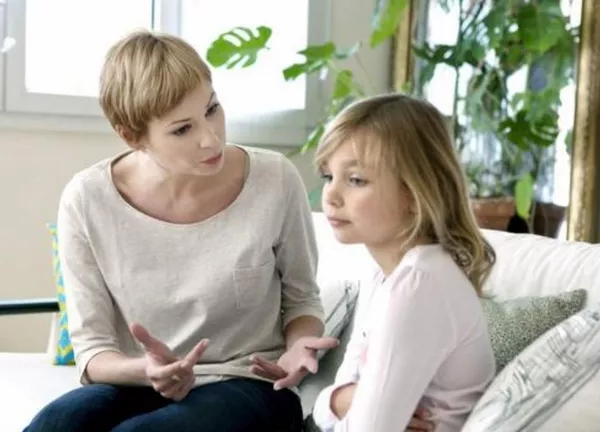When seeking support for mental and emotional well-being, individuals often encounter the terms “psychotherapy” and “therapy.” While both are aimed at helping individuals overcome challenges and improve their mental health, there are distinct differences between the two approaches.
1. Defining Psychotherapy
Psychotherapy is a specialized form of therapy that focuses on addressing psychological and emotional issues through in-depth discussions and therapeutic interventions. It is a structured and evidence-based approach led by licensed mental health professionals, such as psychologists, psychiatrists, clinical social workers, or licensed counselors.
The primary objective of psychotherapy is to facilitate psychological healing, enhance self-awareness, and promote personal growth. This therapeutic process often involves exploring the root causes of emotional distress, trauma, or behavioral patterns. Psychotherapists use a variety of techniques, including talk therapy, cognitive-behavioral therapy (CBT), psychodynamic therapy, and mindfulness-based interventions, to help clients gain insight into their thoughts, emotions, and behaviors.
2. Understanding Therapy
The term “therapy” is a broader, more inclusive term that encompasses various forms of treatment or support aimed at addressing physical, mental, or emotional challenges. Therapy can refer to a range of therapeutic modalities, including physical therapy, occupational therapy, speech therapy, and more.
In the context of mental health, therapy may refer to psychotherapy, but it can also encompass other forms of intervention, such as counseling, support groups, and self-help programs. Unlike psychotherapy, therapy is not limited to mental health professionals; it can involve peer support, life coaching, and other non-professional interventions as well.
3. Distinctions in Scope
One of the significant differences between psychotherapy and therapy lies in their scope. Psychotherapy is a specialized form of mental health treatment provided by licensed professionals with extensive training in psychology and related fields. It is designed to address a wide range of psychological issues, including anxiety, depression, trauma, personality disorders, and more.
On the other hand, therapy, in its broader sense, may encompass various forms of support and intervention targeted at mental, emotional, and physical well-being. For example, physical therapy focuses on improving mobility and managing pain, while occupational therapy helps individuals develop skills for daily living activities.
4. Training and Credentials
The distinction between psychotherapy and therapy also lies in the training and credentials of the professionals providing the services. Psychotherapists typically hold advanced degrees in psychology, counseling, social work, or psychiatry. They undergo rigorous training and clinical supervision to develop the skills necessary for diagnosing and treating mental health conditions.
In contrast, various therapists may provide non-mental-health-focused interventions and support. For example, a life coach may offer guidance and motivation to help individuals achieve personal or professional goals without providing clinical psychotherapy. While their expertise can be valuable, it is essential to recognize the limitations of their qualifications in addressing mental health issues.
5. Therapeutic Approach and Techniques
Psychotherapy and therapy also differ in their therapeutic approach and techniques. In psychotherapy, licensed professionals employ evidence-based therapeutic models tailored to the individual’s needs and diagnosis. For instance, cognitive-behavioral therapy (CBT) focuses on challenging negative thought patterns and behaviors, while psychodynamic therapy delves into unconscious processes and unresolved conflicts.
In contrast, therapy in a broader sense may encompass a wide array of approaches, including experiential therapies, art therapies, and body-based interventions. These techniques can be beneficial for personal growth, enhancing self-awareness, and improving overall well-being, but they may not address specific mental health conditions to the same extent as psychotherapy.
6. Confidentiality and Ethical Standards
Confidentiality and ethical standards play a crucial role in both psychotherapy and therapy. Psychotherapists adhere to strict ethical guidelines and legal regulations governing client confidentiality. They must maintain the privacy and trust of their clients, ensuring that sensitive information shared during therapy remains secure and undisclosed to third parties.
While therapy outside of the clinical setting may also involve ethical considerations, the level of confidentiality may vary. For instance, support groups or peer-led interventions may not guarantee the same level of privacy as sessions with licensed professionals. It is essential for individuals seeking therapy to understand the parameters of confidentiality within the specific therapeutic setting.
7. Target Population and Treatment Goals
The target population and treatment goals also differ between psychotherapy and therapy. Psychotherapy primarily targets individuals experiencing psychological distress, mental health disorders, and emotional difficulties. The treatment goals typically revolve around symptom reduction, emotional regulation, improved coping mechanisms, and long-term mental health maintenance.
In contrast, therapy in a broader sense may cater to a more diverse group of individuals seeking personal growth, life coaching, or general support for various life challenges. The goals of non-mental-health-focused therapy may involve improving self-esteem, enhancing communication skills, fostering resilience, and achieving personal aspirations.
Conclusion
While psychotherapy and therapy share the common goal of supporting individuals in overcoming challenges and improving their well-being, there are critical distinctions between the two. Psychotherapy is a specialized form of mental health treatment led by licensed professionals, addressing a wide range of psychological issues through evidence-based therapeutic techniques. Therapy, on the other hand, is a more encompassing term, which includes various forms of intervention, support, and coaching aimed at promoting overall well-being.
When seeking therapy or psychotherapy, individuals should carefully consider their needs and goals to ensure they receive the appropriate level of support from qualified professionals. Whether the objective is to address specific mental health concerns or to seek guidance in personal growth, the right therapeutic approach can empower individuals on their journey towards better mental and emotional health.























